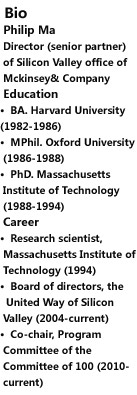Philip Ma: from scientist to businessman
Updated: 2015-01-23 23:39
By LIAN ZI In San Francisco(China Daily USA)
|
||||||||
|
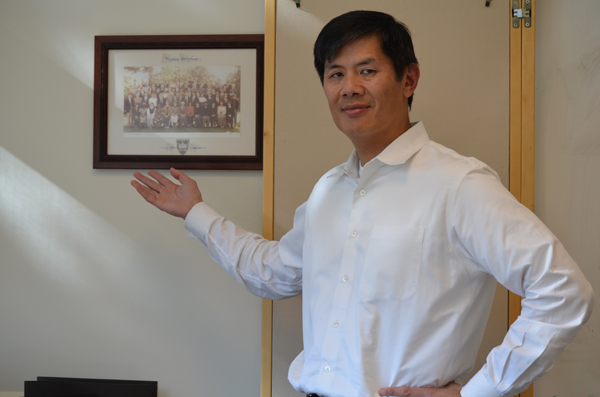 |
|
Philip Ma Director (senior partner) of Silicon Valley office of Mckinsey& Company |
"I see myself as a businessperson who takes advantage of opportunities that science and technology open up," said Philip Ma, a former research scientist at Massachusetts Institute of Technology (MIT) who is now a director and senior partner at McKinsey & Company, one of the largest consulting firms in the world.
Ma is currently working at McKinsey's Silicon Valley office in Palo Alto, California, helping US pharmaceutical companies improve their cost efficiencies given that governments are focusing on drug costs and requiring pharmaceutical companies to be more efficient in the Research & Development (R&D) of new drugs.
Much of his work involves global strategy and operations, including advising clients on their China and broader Asian expansions.
The growth of the pharmaceutical market in China, according to Ma, has been terrific. China has already become the second-largest pharmaceutical market in the world, surpassing Japan in 2014, which was far beyond Ma's expectations of 30 years ago, he said.
In 1987, Ma made a wrong guess about the development of biotech in China. When he first came to China, he thought the country had little potential for a future in biotech since there were few signs of the technology and science then in the relatively poor country.
"However, with all the development, now everyone wants to go China," Ma said. "All of the major drug companies have set up offices there."
At the same time, many of the Chinese scientists who came out and studied in the US have gone back to their home country and started their own businesses there.
Ma is thinking ahead to the next ten years. "Either local Chinese companies or Western companies trying to get into China should ask the question of how they can continue to grow and be successful," he said.
To continue the development of the Chinese pharmaceutical industry, companies have to make sure that any new products hit the Chinese market at the same time they come out in the US.
"Lots of the products you see today in China were brought late to the Chinese market, since they were developed in Western countries and then exported to China later," said Ma.
One thing the Chinese government should consider is encouraging more R&D investment in biotech, especially through academic institutions and universities. Chinese companies could also follow their US counterparts' lead and develop relationships with academic R&D centers and develop their own drugs, Ma suggested.
Had he not gone to McKinsey, Ma probably would have been a good scientist.
Now 50, Ma spent his first 18 years in Saskatoon, Canada, with his parents who emigrated from the Chinese mainland and Hong Kong. As an undergraduate he studied biochemistry at Harvard University, graduating in 1982. He then earned an MPhil in economics as a Rhodes Scholar at Oxford University in 1988 and a PhD in biology at MIT in 1994.
Selection for the Rhodes Scholarship was competitive. "Many politicians were Rhodes Scholars, including Bill Clinton," said Ma.
Why economics? "They told me I could study whatever I wanted at Oxford and at that point, I was interested in economic development in China using biotech," said Ma. "I thought that would be a great way to develop the Chinese economy since China was a relatively poor country in 1986. So I learned economics at Oxford."
After earning his PhD at MIT, Ma worked as a research scientist in the biology department until the offer came from McKinsey.
Ma's experience at Oxford has inspired him to work on exchange programs with the Committee of 100, a non-profit organization composed of prominent Chinese Americans with the mission to "pool their strengths and experience to address important issues concerning the Chinese American community, as well as issues affecting Sino-US relations".
Current members of Committee of 100 include I.M.Pei, master architect; Yo-Yo Ma, renowned cellist; Steve Chen, co-founder of YouTube; Leroy Chiao, NASA astronaut; David Ho, AIDS researcher and 1996 Time Man of the Year; and Michelle Kwan, figure skating champion. Membership to the Committee of 100, which is headquartered in New York and has active regional chapters in Washington, Los Angeles, San Francisco and Beijing, is by invitation only.
"I got involved in the Committee of 100 in 2010 when they had strategic problems and wanted to figure out the best way to make their management more effective," said Ma.
A McKinsey team led by Ma provided consultant services for the organization free of charge. "As a result of doing that, I was invited by the organization to be a member," explained Ma.
The Committee of 100 has a vision to do more in terms of helping communities both in the US and China, said Ma. To fulfill that vision, a program committee led by Ma decided to send US journalists and middle school teachers on trips to China.
"We hope they are able to better understand China and its culture for when they come back and report and teach about China," said Ma. The program started four years ago has already attracted about 50 journalists and teachers.
Ma also serves on the board of directors of the United Way of Silicon Valley, another non-profit organization focused on creating lasting and measurable change in Silicon Valley in the areas of income, education and health.
Rather than seeing himself as a Chinese, Canadian or American, Ma said he is more like a combination of all three. "Most definitely, as my parents came from China, I was immersed in the Chinese culture and raised in an environment that very much valued education, hard work, persistence and family," said Ma.
"My biggest achievement is working with my wife in raising two boys, who are well adjusted and successful, in spite of my having to travel most of the week for my job," he said, adding that the boys were 12 and 15.
As a Chinese descendent, Ma is glad to see so many Chinese Americans find success in the US, even playing major roles in politics.
"In a democratic society like the US, more and more Chinese, as well as Asians, should get involved in politics like Mayor Lee of San Francisco. It is terrific," he said, adding that he looked forward to one day seeing Chinese Americans sitting on the Supreme Court.
As for helping US companies get into China, Ma said it can be challenging, even though there are huge opportunities there.
In the pharmaceutical industry, intellectual property issues in China are still not clear, even though it is getting better. Foreign companies don't want people copying their technology, so it is a very important thing for them to take into account, said Ma.
The second barrier is that the pharmaceutical market in China is very different from the US'. Foreign investors need to consider the nuances of China's business culture and understand how the healthcare system works, he said.
For example, unlike the US where almost all residents have insurance, Chinese residents have insurance only for basic medical care and have to pay out-of-pocket when they go to the private market.
The third thing that Western companies don't always get right in China is talent hunting. Foreign companies must be able to find local talent if they want to succeed there, said Ma.
The population is huge, but the really educated talent group is small, and everyone wants them.
To overcome these difficulties, companies should hire local talent, invest in understanding the Chinese market and tailor their products for Chinese clients, Ma suggested.
zilian@chinadailyusa.com

 International rescue teams head to quake-hit Nepal
International rescue teams head to quake-hit Nepal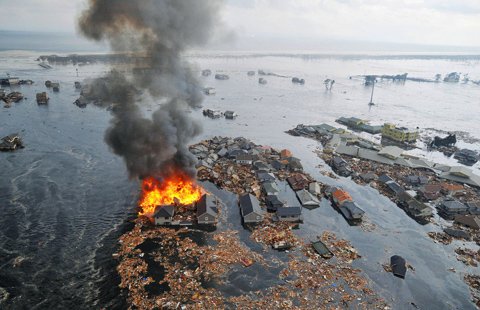
 World's deadliest earthquakes since 1900s
World's deadliest earthquakes since 1900s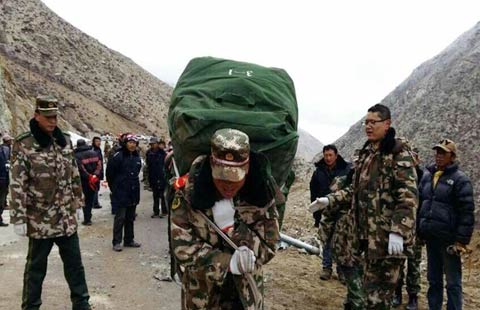
 Rescuers deliver relief supplies on foot
Rescuers deliver relief supplies on foot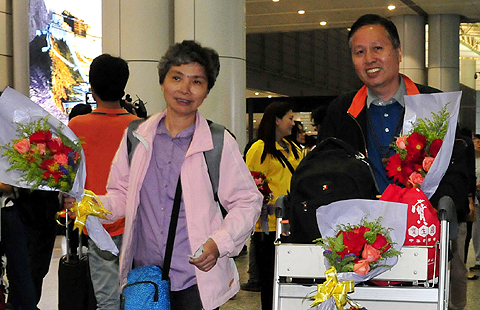
 China brings trapped nationals home from quake-hit Nepal
China brings trapped nationals home from quake-hit Nepal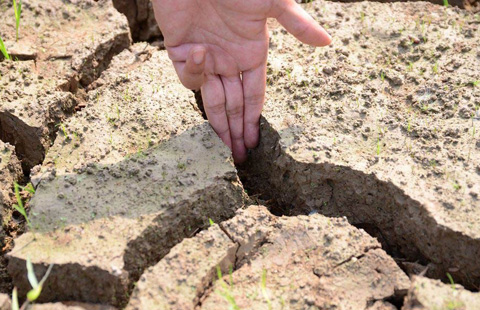
 Severe drought hits Southwest China
Severe drought hits Southwest China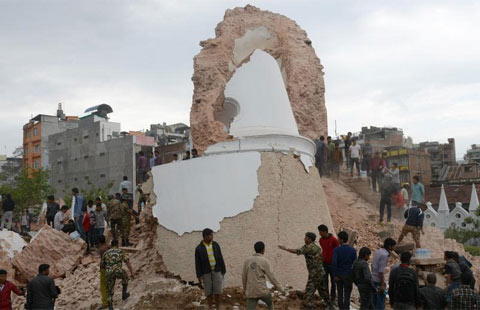
 History razed in Nepal earthquake
History razed in Nepal earthquake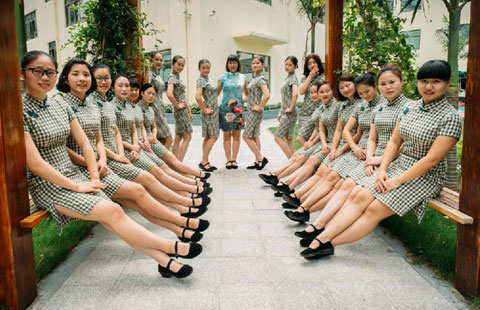
 'Chi-pao teachers' found in Guangdong
'Chi-pao teachers' found in Guangdong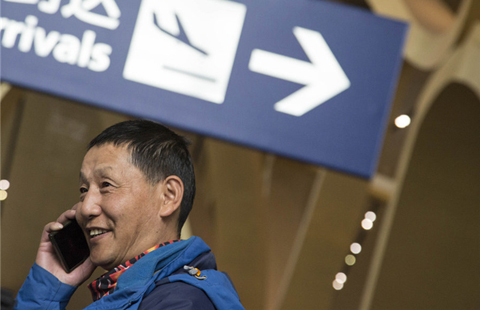
 Tourists evacuated from Nepal quake area arrive in Kunming
Tourists evacuated from Nepal quake area arrive in Kunming
Most Viewed
Editor's Picks

|

|

|

|

|

|
Today's Top News
Chinese, Koreans seek Japan apology
China rescue team starts work
Three US citizens among dead in avalanche after Nepal quake
Chinese rally across US to support NYC police officer under indictment
New publication will focus on China's energy industry
Abe's US trip: sense or sensibility?
China to overtake US in mobile gaming market
Nearly 2,500 confirmed dead in Nepal quake
US Weekly

|

|
